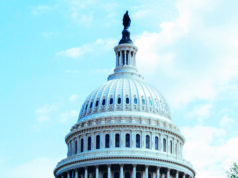 Society for Vascular Surgery (SVS) members can help in the fight against announced reimbursement reductions included in the calendar year 2021 Medicare Physician Fee Schedule (PFS). One of the best ways is by lobbying your local member of Congress.
Society for Vascular Surgery (SVS) members can help in the fight against announced reimbursement reductions included in the calendar year 2021 Medicare Physician Fee Schedule (PFS). One of the best ways is by lobbying your local member of Congress.
Members may simply send pre-written emails, found on the SVS advocacy page, to their members of Congress. Of course, surgeons can also compose their own messages.
As anticipated, the conversion factor in the proposed fee schedule, released Aug. 3, includes reductions for vascular surgery. These cuts are a result of a budget neutrality adjustment that accounts for increases in relative value units (RVUs) for certain services, as required by federal law. In this case, these are new and established patient office visit codes for Evaluation and Management (E/M) services.
Under the proposed rule, the Centers for Medicare and Medicaid Services (CMS) would set the PFS conversion factor for 2021 at $32.26—a reduction of $3.83, or almost 11%—from 2020’s conversion factor of $36.09. The statutory physician payment update for 2021 is 0% as provided under the Medicare Access and CHIP Reauthorization Act (MACRA) of 2015. The drastic 11% reduction in the conversion factor is necessitated by proposed additional spending of $10.2 billion.
The American Medical Association (AMA) RUC’s recommendations to increase the value of E/M office visits account for only half of this additional spending and half of the reduction. The remaining spending increases and resulting conversion factor reduction is attributed to the CMS proposal to increase valuation for several services, including end-stage renal disease, initial preventive physical exam and annual wellness visits, and emergency department visits and increased utilization assumptions about the new E/M office visit primary care add-on code.
CMS did not propose changes to the valuation of 10- and 90-day global surgical packages to reflect changes made to values for the office E/M visit codes. The cumulative effect of these proposals is a projected 7% overall reduction to vascular and general surgeons’ Medicare payments for 2021.
In the area of telehealth, the proposed rule expands the list of telehealth services that will remain permanent beyond the COVID-19 public health emergency (PHE) and keeps additional services—including certain emergency department visits—on the Medicare telehealth list until the end of the calendar year in which the PHE ends.
CMS also reviewed the valuation of several codes used by vascular surgeons. For example, CMS disagreed with the RUC recommendations and proposed lower work RVUs for toe amputation (CPT codes 28820 and 28825). CMS agreed with the RUC recommended work RVUs for venography (CPT codes 75820 and 75822).
CMS proposed changes to the Merit-based Incentive Payment System (MIPS), including postponing implementation of the Value Pathways participation option to allow for additional stakeholder feedback while proposing a new MIPS pathway for participants in alternative payment models. CMS also proposed lowering the weight of the Quality Category performance score from 45 to 40% of the MIPS final score, and increasing the weight of the Cost Performance Category from 15% of the MIPS final score to 20%. CMS would also increase the number of MIPS points needed to avoid a payment penalty.
SVS is urging Congress to enact legislation waiving Medicare’s budget neutrality requirements for the E/M code adjustments and incorporating the E/M office visit increases into global surgical packages to mitigate the projected payment cuts.
SVS members are urged to visit the SVS advocacy page at vsweb.org/VoterVoice and send a pre-written email on this issue to your representatives in Congress. The Society will provide comments on the proposed rule prior to the Oct. 5 deadline.











